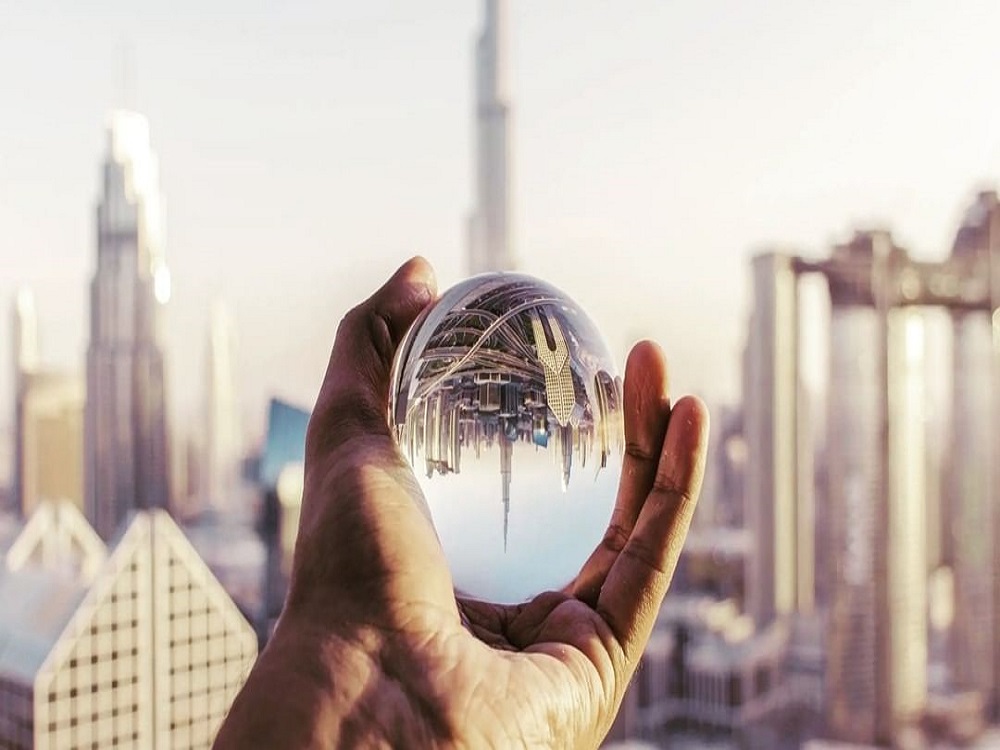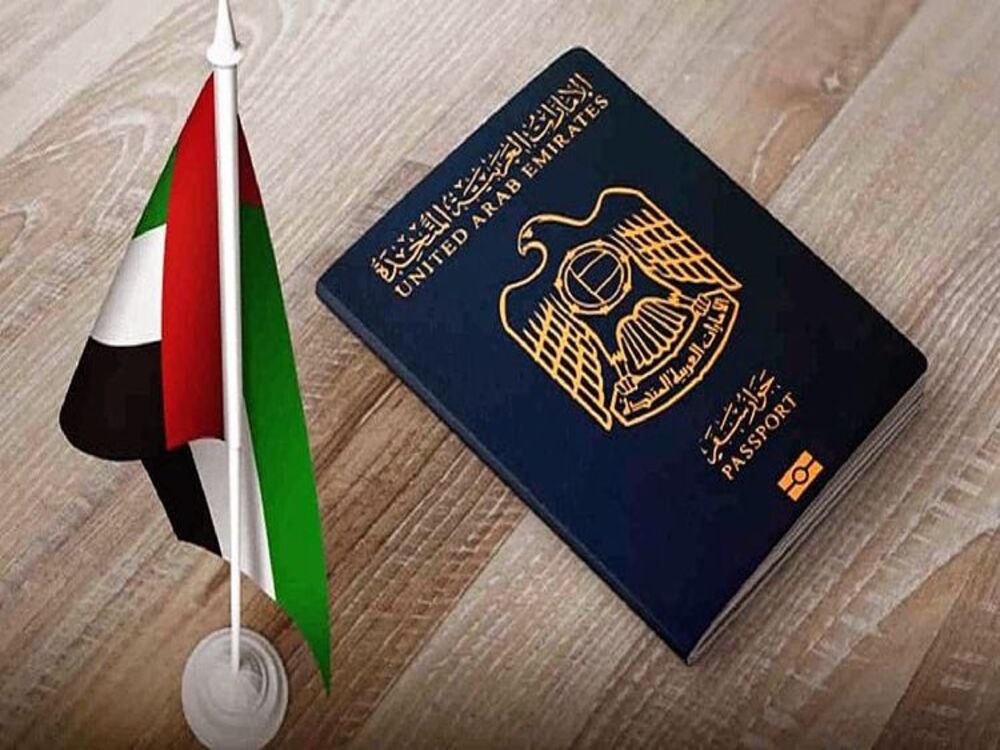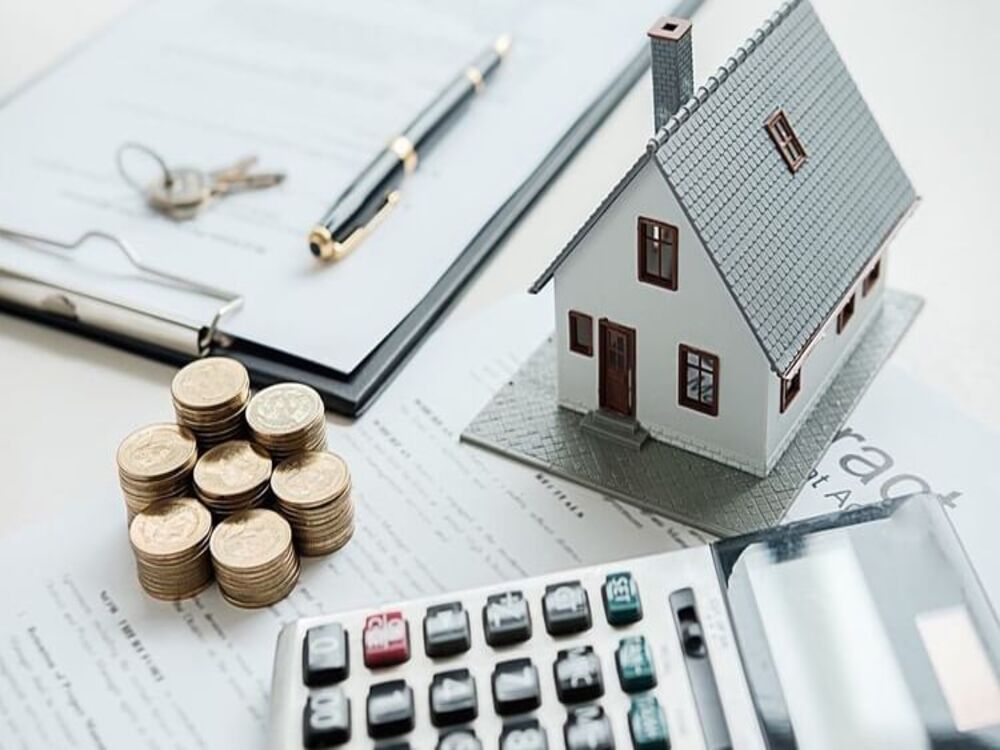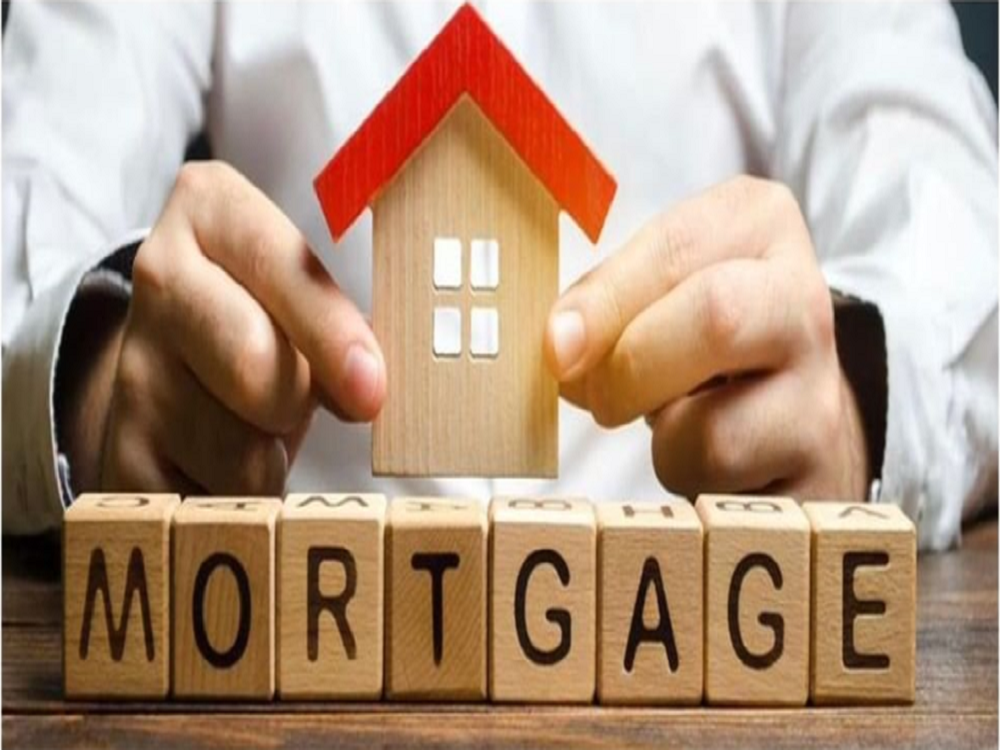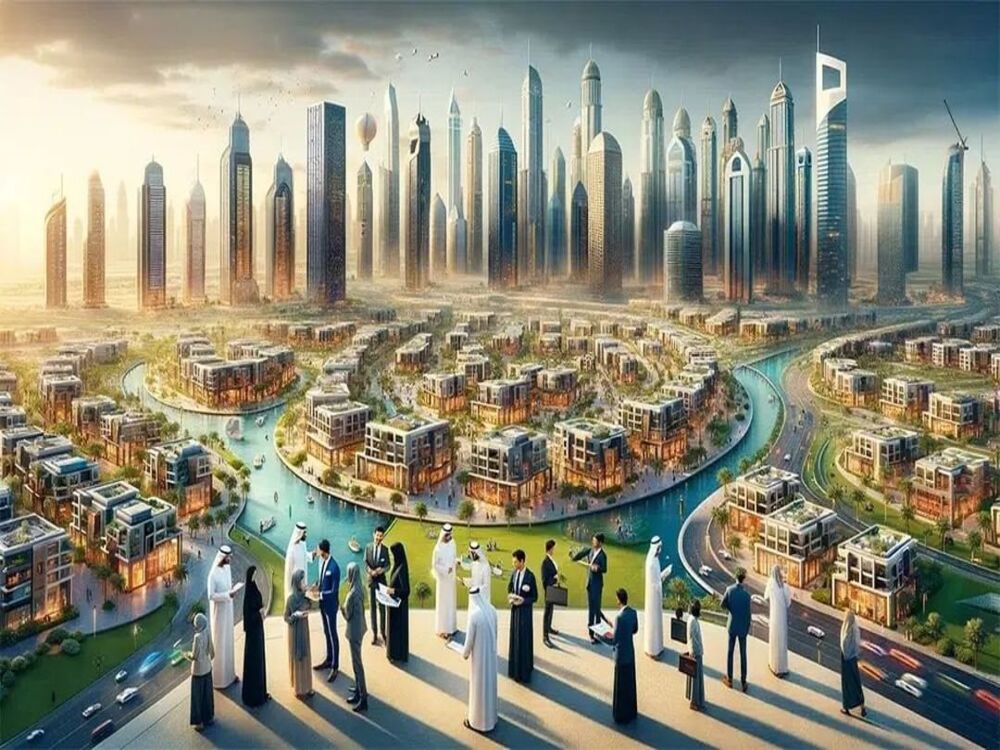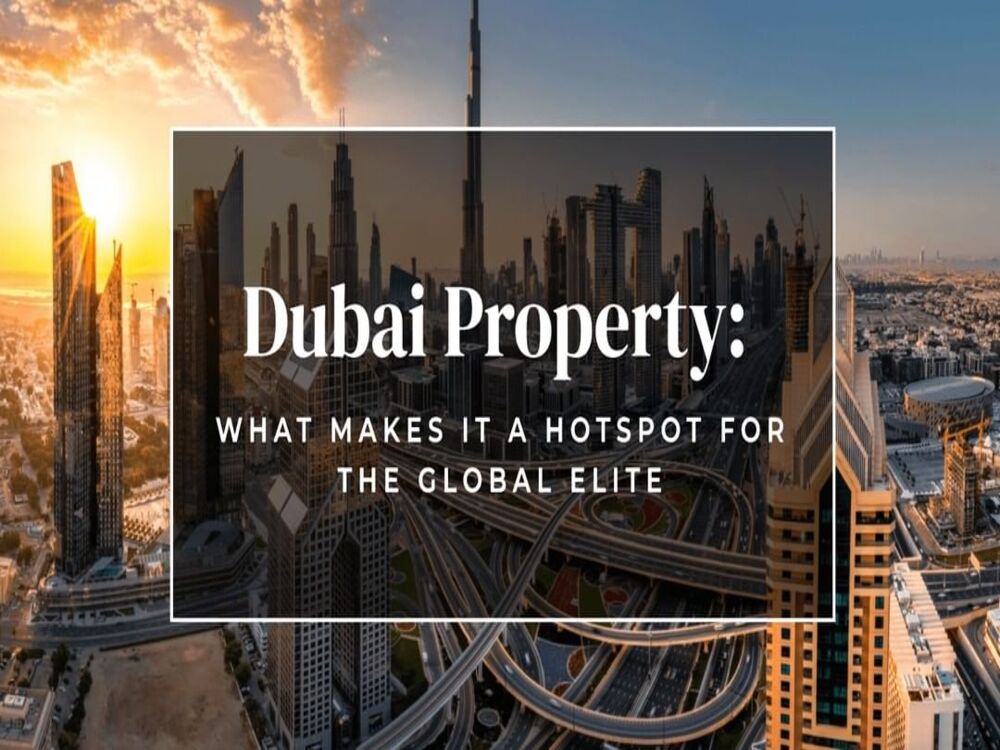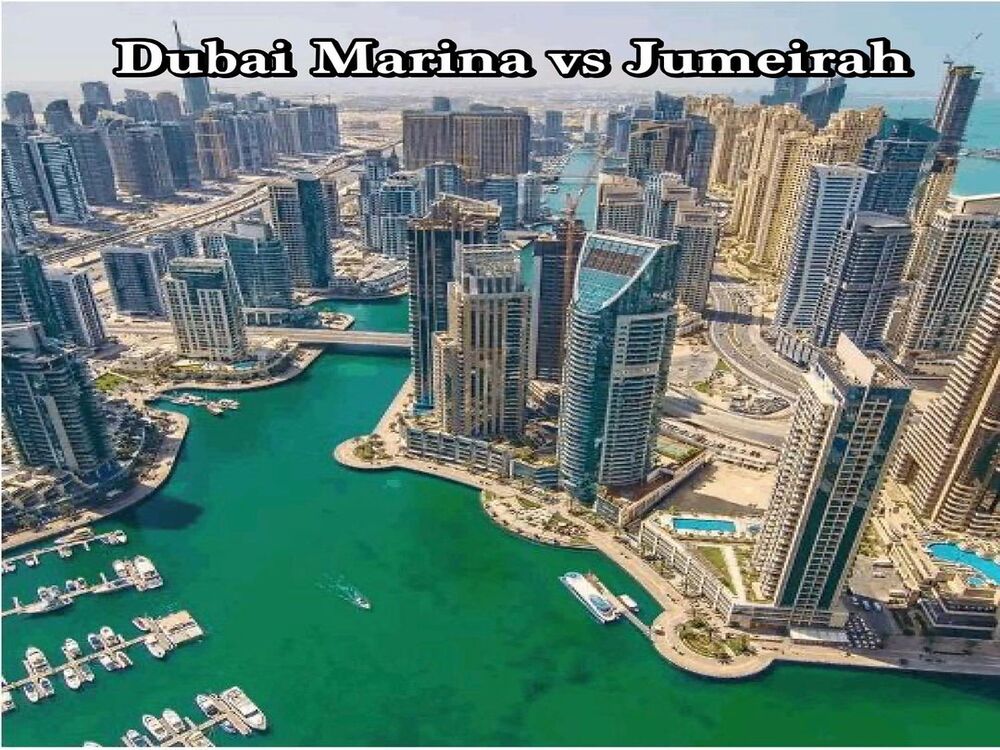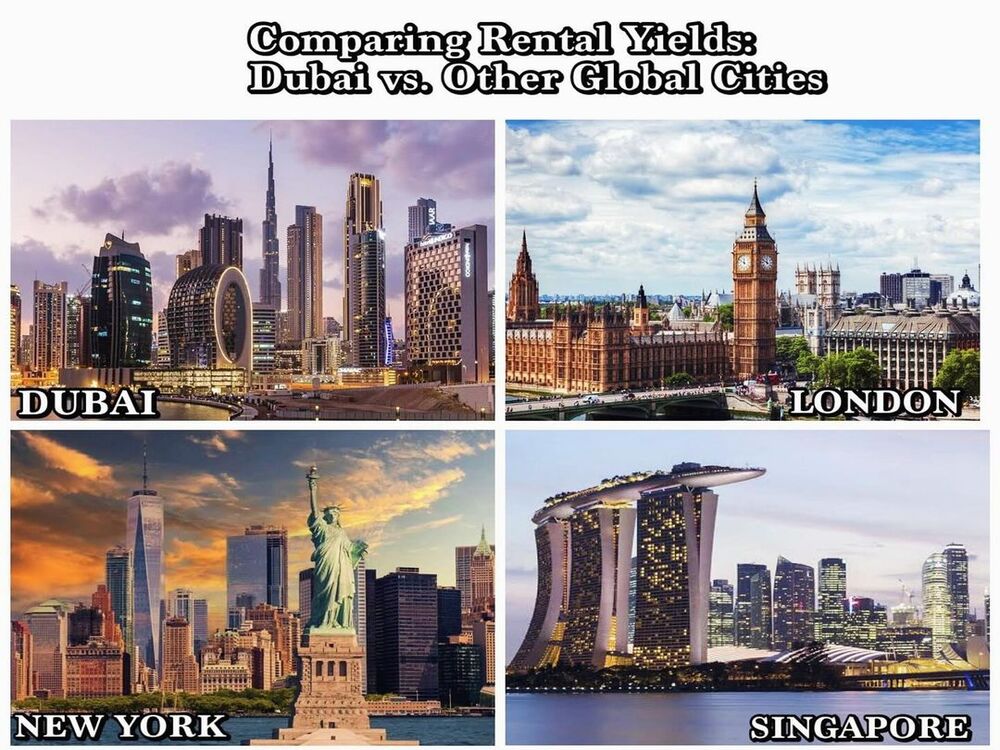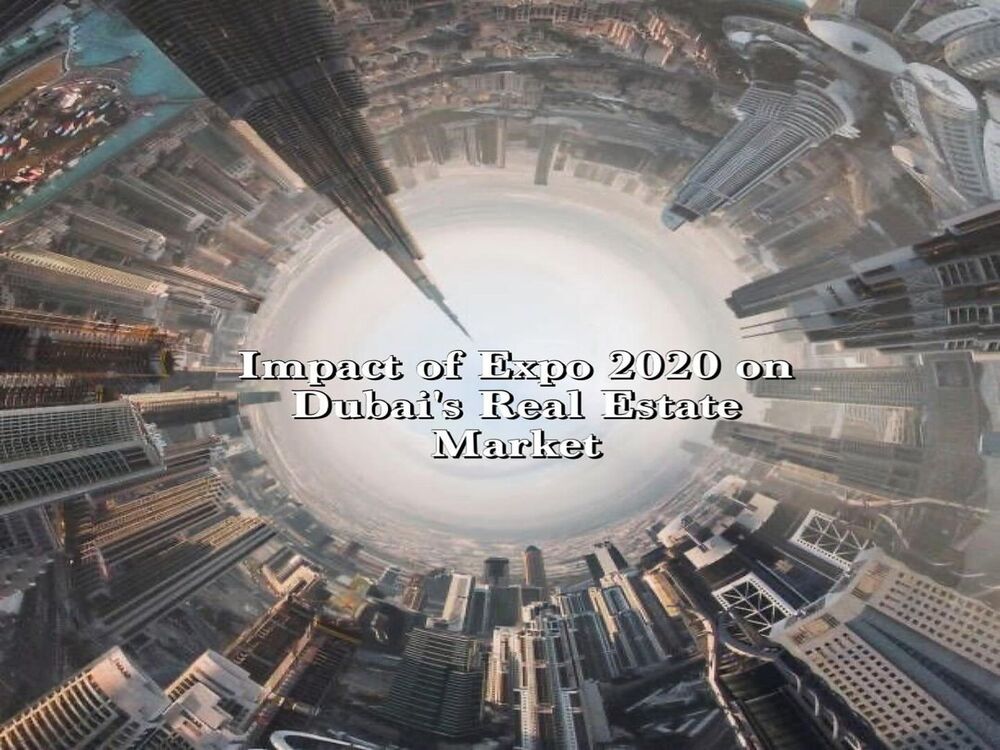Newsletter
Newsletter
As of recent update, Dubai has implemented several regulatory changes in its real estate sector to enhance transparency, investor confidence, and regulatory oversight. Here are the key changes:
2.New Visa Regulations: The investment threshold for residency visas for property investors has been lowered to AED 750,000 to attract more foreign investors.
3.Updated Service Charge Rules: RERA introduced stricter regulations on service charges and maintenance fees to protect property owners from arbitrary increases.
4.Unified Real Estate Contract: A standardized contract for all property transactions aims to simplify processes and reduce disputes.
5.Expanded Property Ownership for Foreigners: More areas now allow 100% foreign ownership, aimed at increasing investment in the real estate market.
6.Retirement Visa for Property Owners: Property owners over 55 can apply for a renewable retirement visa, encouraging long-term residency tied to property investment.
7.Real Estate Self-Transaction Platform (REST): A blockchain-based platform for digital property transactions aims to improve efficiency and transparency while reducing fraud.
These changes are designed to enhance transparency, attract international investors, protect property owners, and streamline transaction processes in Dubai’s real estate sector
As of 2024, Dubai has introduced several new visa rules aimed at enhancing its attractiveness for residents and investors. Here are some of the key updates:
2.Retirement Visa: Dubai has also introduced a retirement visa, targeting expatriates and foreigners aged 55 and above. To qualify for this visa, applicants must either own property in Dubai worth at least 2 million dirhams (approximately $545,000 USD) or have savings of at least 2 million dirhams and a monthly income of no less than 20,000 dirhams (about $5,445 USD).
3.Freelancer Visa: Dubai has streamlined its freelancer visa process, making it easier for self-employed individuals and freelancers to live and work in the city. This visa allows freelancers to operate their businesses from within Dubai, benefiting from its business-friendly environment and infrastructure.
4.Startup Visa: Dubai has launched a new visa category specifically for startup founders and entrepreneurs. This visa is designed to attract innovative businesses and entrepreneurs to Dubai, fostering entrepreneurship and innovation within the city.
These visa reforms are part of Dubai’s broader strategy to diversify its economy, attract foreign talent and investment, and position itself as a global hub for business, innovation, and lifestyle.
Financing Your Property Purchase in Dubai ?
Financing a property purchase in Dubai involves evaluating various options tailored to different needs and preferences.
1.Mortgages Offered by banks with options like fixed and variable rates, typically financing up to 75-80% of the property value for UAE nationals.
2.Developer Financing Provides flexibility with extended payment plans and lower initial costs, suitable for properties under construction or newly completed.
3.Islamic Financing Sharia-compliant options like Ijara and Murabaha, avoiding interest (riba) while accommodating diverse financial needs.
4.Personal Loans Higher interest rates but viable for smaller investments or when traditional mortgages are not feasible.
5.Expat Financing Tailored solutions for non-residents with considerations like visa status and currency exchange.
Regulated by the UAE Central Bank, Dubai’s mortgage market ensures transparency and borrower protection. Factors influencing decisions include risk tolerance, financial profile, property type, and market conditions. Practical insights and case studies highlight strategies for luxury properties, investment opportunities, and off-plan purchases.
Choosing the right financing aligns with long-term investment goals, guided by expert advice from VVS Estate to navigate Dubai’s dynamic property market effectively.
Understanding Mortgages in Real Estate
A Comprehensive Guide explores the pivotal role of mortgages in property acquisition, catering to both novices and seasoned investors alike.
1. Conventional Mortgages: Offered by private lenders such as banks and credit unions, requiring a typical down payment of around 20% of the home’s purchase price. Terms and interest rates vary based on lender policies and borrower financial profiles.
2. Government-Backed Mortgages: Insured or guaranteed by federal agencies like FHA, VA, or USDA, these mortgages aim to enhance accessibility to homeownership by offering lower down payments and more flexible credit score criteria.
3. Fixed-Rate Mortgages: Maintain a consistent interest rate throughout the loan term, ensuring predictable monthly payments that facilitate budgeting. Loan terms usually range from 15 to 30 years.
4. Adjustable-Rate Mortgages (ARMs): Initially feature lower interest rates than fixed-rate mortgages but are subject to market fluctuations.
Key Components of a Mortgage:
1. Principal: The initial amount borrowed, which decreases with each mortgage payment.
2. Interest: The cost of borrowing money, expressed as an annual percentage rate (APR).
3. Down Payment: Upfront payment made by the buyer, calculated as a percentage of the home’s purchase price.
4. Loan Term: The duration over which the mortgage is repaid, offering flexibility from 15 to 30 years typically.
5. Closing Costs: Fees associated with finalizing the mortgage transaction, including appraisal fees, title insurance, and attorney fees.
Benefits of Mortgages:
1. Homeownership: Facilitates property purchase without needing to pay the full price upfront, making it accessible to more individuals and families.
2. Building Equity: Mortgage payments contribute to building equity in the property, which can be leveraged for future investments or financial stability.
3. Tax Deductions: Interest paid on mortgages may be tax-deductible, providing potential financial advantages to homeowners.
Predicting Future Trends in Dubai Real Estate
Dubai’s real estate journey has been a rollercoaster of growth, setbacks, and resilience. Here’s a snapshot of what’s shaping its future:
Global Financial Crisis (2008-2009): Property prices plummeted, halting many developments.
Recovery (2010s): Government initiatives and investor confidence revived the market.
Expo 2020: Anticipation boosted real estate investments.
2. Present Trends Pandemic Impact: Mixed effects; residential sector shows resilience.
Shift in Demand: Remote work drives interest in larger properties with outdoor spaces.
Government Initiatives: Visa reforms and incentives bolster market activity.
Sustainable Development: Green initiatives are key in new projects.
3. Future Predictions Recovery and Growth: Population increase, economic diversification, and infrastructure projects drive long-term growth.
Expo 2020 Legacy: Positive impacts expected on tourism, business, and infrastructure.
Technology Integration: Smart solutions enhance efficiency and user experience.
Affordability Focus: Dubai Affordable Housing Strategy targets middle-income residents.
Geographical Expansion: Development spreads beyond traditional areas.
Affordability and Luxury Trends Affordability: Rising demand for affordable housing; more projects with smaller units and flexible payment plans.
Luxury Properties: Dubai remains a magnet for high net worth individuals; iconic developments attract luxury buyers.
Market Overview Demand-Supply Dynamics: Suburban areas see more affordable housing supply; luxury properties maintain demand.
Price Variations: Significant differences; luxury properties command premium prices.
Market Resilience: Economic diversification and government support sustain Dubai’s real estate resilience.
Understanding these trends is crucial for navigating Dubai’s evolving real estate landscape.
Why Dubai is a Global Real Estate Hotspot
Dubai continues to attract global investors and homebuyers as a premier real estate destination due to several key factors:
• Economic Stability: Diversification beyond oil revenues into sectors like tourism, finance, and technology has strengthened Dubai’s economic resilience, making it a stable and attractive investment destination.
• World-Class Infrastructure: Landmarks such as the Burj Khalifa and the Palm Jumeirah, alongside modern transport networks like the Dubai Metro, enhance connectivity and quality of life. These developments also foster substantial real estate growth and investment.
• Tax Benefits: Dubai’s tax-free environment, featuring no personal income tax, capital gains tax, or property tax, appeals to global investors seeking favourable financial conditions and wealth accumulation opportunities. • High Rental Yields: Dubai offers some of the highest rental yields globally, particularly in prime locations, making it an appealing choice for investors looking for strong rental income and potential appreciation.
• Cultural Diversity: With over 200 nationalities contributing to its vibrant community, Dubai is celebrated for its inclusive atmosphere and diverse social fabric, enhancing its attractiveness as a place to live and invest.
As Dubai continues to evolve, VVS Estate remains dedicated to guiding investors through its dynamic market landscape, ensuring they capitalize on the city’s opportunities for investment and living.
Living in Dubai Marina vs. Jumeirah Beach Residence (JBR): What to Expect
Dubai Marina and Jumeirah Beach Residence (JBR) are both highly sought-after residential
Dubai Marina:
Vibrant Lifestyle: Known for its bustling atmosphere and active social scene.
Waterfront Living: Offers stunning views along a man-made canal.
High-Rise Living: Dominated by luxurious high-rise residential towers.
Shopping and Convenience: Abundant retail outlets, supermarkets, and convenience stores.
Jumeirah Beach Residence (JBR): Beachfront Living: Direct access to the beach, a major highlight.
Community Feel: Pedestrian-friendly streets, outdoor dining, and community events.
Luxury Amenities: Upscale shopping, dining, and entertainment options.
Outdoor Activities: Ideal for jogging, cycling, and water sports.
Demographics and Lifestyle: Dubai Marina: Appeals to young professionals, expatriates, and singles with an active nightlife.
JBR: More family-friendly with parks, playgrounds, and schools nearby. Property Types and Prices:
Both areas offer apartments, penthouses, and villas, with varying price ranges.
Dubai Marina focuses on high-rise apartment complexes, while JBR emphasizes beachfront properties. Accessibility and Convenience:
Dubai Marina benefits from its central location near major business districts. JBR offers proximity to schools, parks, and recreational facilities.
Real Estate Trends: Dubai Marina: Strong demand due to location and amenities.
JBR: Growing development, particularly in beachfront properties, attracting investors and residents alike.
Dubai Marina and JBR cater to diverse lifestyles, from vibrant urban living to relaxed beachfront serenity, reflecting Dubai’s cosmopolitan appeal with a range of amenities and residential options.
Comparing Rental Yields: Dubai vs. Other Global Cities
Caption: Discover how Dubai’s rental yields compare to other major global cities.
Dubai:
* High Yields: 5-8% average rental yields.
* Tax-Free Income: No property or capital gains tax.
* Growing Demand: Attracts expatriates and tourists.
London:
* Moderate Yields: 3-5%.
* High Property Prices: Affects returns.
New York:
* Lower Yields: 2-4%.
* High Demand: Dense population and business opportunities.
Singapore:
* Stable Yields: 3-5%.
* Regulated Market: Ensures stability but limits rapid growth.
“Landlords grow rich in their sleep without working, risking, or economizing.” – John Stuart Mill
Dubai’s real estate market is transparent and well-regulated, attracting global investors. For high returns and a favorable investment environment, Dubai is a top choice. VVS Estate can help you capitalize on these opportunities.
“Success in real estate comes down to two factors: location and timing.” – Unknown
Learn how Expo 2020 has influenced Dubai’s real estate market.
Expo 2020 has had a profound impact on Dubai’s real estate market, driving growth and investment in various sectors. Here’s a look at how the event has shaped the market.
1. Infrastructure Development: Significant investments in infrastructure, including new roads, public transport, and amenities, have boosted property values in surrounding areas.
2. Increased Demand: The influx of visitors, businesses, and investors during Expo 2020 has increased demand for residential and commercial properties.
3. Long-Term Growth The development of the Expo 2020 site into District 2020 is set to transform it into a mixed-use community, ensuring sustained interest and investment.
4. Enhanced Global Profile: Expo 2020 has enhanced Dubai’s global profile, attracting international investors and boosting the city’s reputation as a prime real estate destination.
Expo 2020 attracted millions of visitors from around the world, significantly boosting Dubai’s economy and real estate market.
District 2020, the legacy project of Expo 2020, will feature residential, commercial, and cultural spaces, designed to be a model for future sustainable urban living.
The impact of Expo 2020 on Dubai’s real estate market is evident, creating numerous opportunities for investors. VVS Estate is here to help you navigate these exciting developments and find the best investment opportunities.
Don’t wait to buy real estate. Buy real estate and wait”.- Will Rogers
Understand the key differences between real estate markets in Dubai and Abu Dhabi. Make an informed investment choice in the UAE.
Dubai:
1. Dynamic Market: Known for its rapid growth and diverse property options, from luxury apartments to affordable housing.
2. Tourism and Business Hub: High rental yields driven by strong demand from tourists and expatriates.
3. Global Appeal: Attracts international investors due to its cosmopolitan lifestyle and major attractions.
Abu Dhabi:
1. Stable Growth: A more stable and regulated market with steady growth in property values.
2. Government Investments: Significant investments in infrastructure and public projects, enhancing the city’s appeal.
3. Quality of Life: Known for its high quality of life, with well-planned residential areas and ample green spaces.
Abu Dhabi offers a more conservative real estate market compared to Dubai, with long-term stability and gradual appreciation in property values.
While Dubai is known for its iconic skyscrapers and bustling lifestyle, Abu Dhabi is home to beautiful cultural landmarks like the Sheikh Zayed Grand Mosque and Louvre Abu Dhabi.
Both Dubai and Abu Dhabi offer unique advantages for real estate investors. VVS Estate is here to provide expert guidance to help you make the best investment decisions in the UAE.
Referenced from Dubai Land Department official website as well as https://vvsestate.com/faqs/ from Frequently asked questions:
What is the purpose of the 5% retained amount in the escrow account?
The sea, once it casts its spell, holds one in its net of wonder forever.” – Jacques Yves Cousteau
“Explore the benefits and lifestyle of waterfront living in Dubai. Discover prime waterfront properties and their unique advantages.
1. Stunning Views:
Waterfront properties offer breathtaking views of the sea, marina, or canal, providing a serene and picturesque environment.
2. Premium Lifestyle:
Living by the water often includes access to exclusive amenities such as private beaches, marinas, and waterfront promenades.
3. High Property Value:
Waterfront properties typically
command higher prices and rental yields due to their prime location and limited availability.
4. Recreational Opportunities:
Residents enjoy a range of water-based activities such as yachting, kayaking, and paddleboarding, enhancing the quality of life.
Areas like Dubai Marina, Palm Jumeirah, and Jumeirah Beach Residence (JBR) are among the most sought-after waterfront communities in Dubai.
Dubai Marina, one of the world’s largest man-made marinas, is designed to accommodate over 120,000 residents in luxury towers and villas.
Waterfront living offers a unique blend of luxury, convenience, and natural beauty. VVS Estate is here to help you find your dream waterfront property in Dubai.
The future is now, thanks to smart home technology that makes our lives easier and our homes more efficient.” – Unknown
Discover how smart home technology is revolutionizing living standards in Dubai. Learn about the latest trends and innovations.
1. Home Automation:
Smart homes feature automated systems for lighting, heating, and cooling, allowing residents to control their environment with ease.
2. Enhanced Security:
Advanced security systems, including smart locks, cameras, and alarm systems, provide peace of mind and real-time monitoring.
3. Energy Efficiency:
Smart thermostats, lighting systems, and energy management solutions help reduce energy consumption and lower utility bills.
4. Connectivity:
Smart homes are equipped with high-speed internet and integrated systems that connect all smart devices for seamless operation.
Dubai aims to become one of the world’s smartest cities, with initiatives like Smart Dubai driving the adoption of advanced technologies.
Some of Dubai’s most luxurious properties, such as those in Downtown Dubai and Palm Jumeirah, now feature state-of-the-art smart home systems.
The integration of smart technology in homes is setting new standards for modern living. VVS Estate is here to help you explore and invest in Dubai’s innovative smart home market.
Best Time to Buy Property in Dubai: Market Trends and Insights “Real estate investing, even on a very small scale, remains a tried and true means of building an individual’s cash flow and wealth.”
– Robert Kiyosaki
“Find out the best times to buy
Timing is crucial when investing in real estate. Here’s what you need to know about the best times to buy property in Dubai based on current market trends and insights.
1. Market Cycles:
Understanding Dubai’s real estate market cycles can help you identify periods of growth and slowdown, allowing you to buy at the most opportune times.
2. Seasonal Trends:
Historically, property transactions peak during certain seasons, such as post-Ramadan and pre-summer months, when expatriates are settling down.
3. Economic Indicators:
Keeping an eye on economic indicators like GDP growth, employment rates, and tourism statistics can provide insights into market health and investment timing.
4. Developer Offers:
Developers often launch new projects or offer special promotions during major events like the Dubai Property Show or Cityscape, providing attractive investment opportunities.
Dubai’s real estate market has shown resilience and adaptability, with significant growth spurts following global events like Expo 2020.
Some of the best property deals can be found during the summer months when expats typically travel, and the market experiences a slight slowdown.
Knowing when to buy can make a significant difference in your investment returns. VVS Estate is here to provide expert guidance and help you make the best investment decisions in Dubai.
Dubai is expected to issue approximately 10,000 new real estate broker licenses in 2024, marking a significant expansion of the professional workforce in the city’s dynamic property market. This surge in new licenses underscores Dubai’s commitment to reinforcing its position as a
The anticipated influx of licensed brokers reflects the city’s strategic efforts to meet growing demand and attract a diverse array of investors. By increasing the number of qualified professionals, Dubai aims to enhance the quality of service in the real estate sector, ensuring that brokers are well-equipped to navigate the complexities of the market and provide expert guidance to clients.
This initiative aligns with Dubai’s broader economic goals, as the real estate sector remains a crucial pillar of the city’s economy. The issuance of these new licenses will not only stimulate competition among brokers but also contribute to the overall vibrancy and resilience of the market, fostering an environment where innovation and excellence can thrive.
As Dubai continues to develop landmark projects and attract international interest, the expanded pool of real estate professionals will play a vital role in sustaining the city’s growth and ensuring that it remains a top choice for investors from around the world.
VVS stands out as a comprehensive real estate service provider, offering a full range of solutions to meet every need in your property journey.
Why Choose VVS?
VVS offers a complete suite of services that covers every aspect of real estate management, from property management to mortgage brokerage and conveyancing. We are dedicated to providing personalized solutions that align with your specific needs, ensuring a smooth, efficient, and profitable real estate experience. With our expertise, resources, and commitment, we handle all the complexities of real estate so you can achieve your property goals seamlessly.
Choose VVS as your one-stop solution expert and let us help you navigate the real estate market with confidence.
Dubai has become a significant attraction for the ultra-wealthy due to its high standard of living, real estate, and luxury lifestyle offerings.
Millionaires: According to recent reports, Dubai is home to over 67,900 millionaires as of 2023. Many are expats who have chosen Dubai as their home due to its safe environment, investment-friendly policies, and high-quality living standards.
Billionaires: The city is also home to about 15 billionaires, with many of them involved in global business ventures, real estate, and technology sectors.
Tourism
Dubai has positioned itself as a top global tourist destination, blending modern luxury with traditional culture. Here are some key points:
Number of Visitors: In 2023, Dubai welcomed approximately 14 million international tourists. This is a significant recovery from previous years affected by the pandemic and showcases Dubai’s growing appeal as a luxury destination.
Tourist Attractions: Iconic landmarks such as the Burj Khalifa, Dubai Mall, Palm Jumeirah, and various cultural attractions draw millions annually. Festivals like the Dubai Shopping Festival and Expo events further boost tourism.
Why People Choose Dubai:
Business Environment: Many global corporations and startups establish their presence in Dubai, lured by free zones, tax benefits, and a favorable regulatory environment.
Safety: Dubai is known for its low crime rates, which appeals to both families and high-net-worth individuals.
Luxury and Lifestyle: Dubai offers world-class amenities, including luxury shopping, fine dining, and a booming real estate market. The cosmopolitan lifestyle is a major draw for wealthy individuals seeking a high standard of living.
Global Connectivity: Dubai’s central location between Europe, Asia, and Africa makes it a global crossroads, enabling easy travel and access to international markets.
In real estate, successful buying, selling, and investing strategies focus on through market research, strategic property selection, and careful
Buying Strategy:
Market Research: Understand local market trends and economic indicators.
Property Selection: Focus on prime locations and in-demand property types.
Financing: Choose the right mortgage and consider leveraging wisely.
Due Diligence: Ensure property inspections and legal checks are completed.
Selling Strategy:
Market Timing: Sell during favorable market conditions and seasons.
Property Presentation: Stage and upgrade the property to maximize appeal.
Marketing: Use targeted advertising and make sure that you use a real estate professional.
Negotiation: Set a competitive price and be prepared to negotiate.
Investment Strategy:
Long-Term vs. Short-Term: Choose between holding properties for appreciation or flipping for quick profits.
Rental Properties: Consider buy-to-let for steady income, and decide on property management.
Diversification: Spread investments across different locations and property types.
Exit Strategy: Plan your exit before investing and consider tax implications.
Professional Advice & Learning:
Real Estate Agents & Financial Advisors: Leverage their expertise and networks.
Continuous Learning: Stay informed about market trends and investment strategies.
Global Investment:
International Markets: Diversify by exploring international opportunities, understanding local laws, and managing currency risks.
These strategies help ensure real estate investments are profitable, minimize risks, and adapt to market changes.
We have been receiving incredible feedback from clients, refer to our website
page https://vvsestate.com/ and I believe these reviews speak to the dedication and effort of our team puts into every transaction.
Would appreciate if you will leave a review on our google page
https://maps.app.goo.gl/7pBJy5nkruNJQJLn7?g_st=com.google.maps.preview.copy
We offer fast and efficient mortgage services, connecting you with all major banks in Dubai to ensure the quickest processing times. Our team is dedicated to helping clients secure the best mortgage options tailored to their financial needs.
Whether you’re purchasing a new home or investing in property, we streamline the process, making it easy and stress-free.
Reach out today for expert assistance in getting the right mortgage to suit your goals. We’re here to support you every step of the way.
The best investment on Earth is earth.” – Louis Glickman
Stay ahead of the curve by understanding the future trends in Dubai’s real estate market. Discover what to expect more in 2024.
As we look ahead to 2024, several emerging trends are set to shape Dubai’s real estate market. Here’s what to watch out for in the coming year.
1. Smart Cities:
Dubai’s continued investment in smart city initiatives will see more properties equipped with advanced technologies, enhancing living standards and efficiency.
2. Sustainable Development:
Eco-friendly and sustainable developments will gain more traction, with an increasing number of projects focusing on green building practices.
3. Mixed-Use Developments:
The rise of mixed-use developments that combine residential, commercial, and recreational spaces will cater to the growing demand for convenience and integrated living.
4. Affordable Housing:
There will be a continued emphasis on affordable housing projects to cater to the diverse expatriate population and middle-income residents.
5. Virtual Real Estate:
The integration of virtual reality (VR) and augmented reality (AR) in real estate marketing will provide buyers with immersive property viewing.
Dubai aims to become one of the world’s smartest cities by 2024, with significant investments in technology and infrastructure.
The market is *heating up* 🔥 with property prices seeing steady growth, especially in key areas like Downtown, Marina and Palm Jumeirah and others.🏙️ With increased demand and limited supply, investing in Dubai real estate is becoming more lucrative than ever. 💼
💡 *What’s driving this growth?* From relaxed visa policies to high rental yields, Dubai remains a top destination for investors. Thinking about buying or selling? Now is the time to capitalize on this momentum!
DM us for exclusive insights and property listings. 📩 Let’s make your real estate investment a success! 💰
Would you like to take your carrier to the next level?
We are hiring!
Please send your CV to 📧 [email protected] or via WhatsApp 📲 0565515999.
Location is the key to successful real estate investment.”
– Alex Johnson
Compare property prices in Downtown Dubai and Jumeirah to determine which area offers the best value for your investment.
Downtown Dubai and Jumeirah are two of the city’s most desirable neighborhoods, each offering unique advantages. Here’s a comparison of property prices and what each area has to offer.
Downtown Dubai
1.Luxury Living:Home to iconic landmarks like the Burj Khalifa and The Dubai Mall, Downtown Dubai offers luxurious apartments and penthouses.
2.High Property Prices:The average price per square foot is higher, reflecting the premium location and exclusive amenities.
3.Vibrant Lifestyle:Residents enjoy a bustling lifestyle with easy access to world-class dining, shopping, and entertainment.
Jumeirah:
1.Beachfront Properties:Jumeirah offers a mix of villas and townhouses with stunning beachfront views and private beach access.
2.Moderate Prices:Property prices per square foot are generally lower compared to Downtown, offering better value for spacious homes.
3:Family-Friendly:Known for its serene environment and excellent schools, Jumeirah is ideal for families seeking a peaceful lifestyle.
Downtown Dubai is often referred to as the “Centre of Now” due to its central location and dynamic atmosphere.
Jumeirah Beach Road, lined with luxury villas and boutique shops, is one of Dubai’s most famous streets, known for its charm and exclusivity.
Choosing between Downtown Dubai and Jumeirah depends on your lifestyle preferences and investment goals. VVS Estate is here to help you find the perfect property in your desired neighborhood.
Property management is about finding the right balance between maintaining the property and maximizing the return on investment.” – Unknown
Learn why property management services are crucial for real estate investors in Dubai. Ensure your investment
Effective property management is essential for maintaining and maximizing the value of your real estate investment in Dubai. Here’s why property management services are crucial.
1. Tenant Screening:
Professional property managers ensure thorough tenant screening, selecting reliable tenants and minimizing vacancy rates.
2. Maintenance and Repairs:
Regular maintenance and prompt repairs keep your property in top condition, preventing costly issues and enhancing tenant satisfaction.
3. Rent Collection:
Property managers handle rent collection and enforce lease terms, ensuring timely payments and reducing financial stress for landlords.
4. Legal Compliance:
Staying compliant with local laws and regulations is vital. Property managers ensure your property meets all legal requirements, avoiding potential fines.
5. Market Knowledge:
With in-depth knowledge of the real estate market, property managers can set competitive rental rates and implement effective marketing strategies.
Dubai’s property management market is highly competitive, with numerous companies offering specialized services for residential and commercial properties.
Some property management companies in Dubai offer 24/7 concierge services, providing tenants with a luxurious and convenient living experience.
Investing in property management services can enhance the profitability and longevity of your real estate investment. VVS Estate is here to connect you with trusted property management professionals in Dubai.
“Investing in hospitality real estate can be both lucrative and rewarding, as it combines real estate with the dynamic tourism industry.” – Unknown
Discover the advantages of investing in Dubai’s thriving hospitality sector. Tap into the lucrative market of hotels and serviced apartments.
Investing in Dubai’s hospitality sector offers significant benefits, thanks to the city’s booming tourism industry. Here’s why this market is worth considering.
1. High Occupancy Rates:
Dubai’s status as a global tourism hub ensures high occupancy rates for hotels and serviced apartments, providing steady income.
2. Premium Returns:
Hospitality properties often yield higher returns compared to traditional real estate investments, driven by the constant influx of tourists.
3. Government Support:
The Dubai government actively supports the tourism and hospitality sectors, with initiatives to attract visitors and enhance infrastructure.
4. Diversified Portfolio:
Investing in hospitality properties diversifies your investment portfolio, reducing risk and capturing growth in a different market segment.
5. Event-Driven Demand:
Major events like Dubai Expo 2020 boost demand for hospitality properties, creating opportunities for short-term and long-term gains.
Dubai welcomed over 16 million tourists in 2019, making it one of the most visited cities in the world.
Dubai is home to some of the world’s most luxurious hotels, including the iconic Burj Al Arab, known for its distinctive sail-shaped silhouette.
Investing in Dubai’s hospitality sector can offer substantial returns and growth potential. VVS Estate is here to help you navigate this exciting market and find the best opportunities.
Key Facts Every Buyer Should Know
1. Freehold vs. Leasehold
Ownership
• Freehold: Expats can fully own properties in designated areas like Dubai Marina, Palm Jumeirah, and JBR, including both the land and the building.
• Leasehold: Typically offered for 99 years, giving buyers the right to use the property without owning the land
2. Residency Visas through Real Estate Investment
• AED 750,000+: Qualifies for a 2-year renewable visa. The property must be completed (not off-plan) and in the buyer’s name.
• AED 2 million+: Investors can secure a 5-year visa or golden visa (10 years). Using 25% of this amount, they can provide a down payment and purchase off-plan property, with benefits like sponsoring family members and owning multiple businesses.
3. Dubai Land Department (DLD) Regulations
• Registration Fees: Property buyers must pay 4% of the purchase price to the DLD.
• Ejari System: All rental contracts must be registered via Ejari, a system that regulates leases and ensures legal protection for tenants and landlords.
4. Tax-Free Property Market
• Dubai’s real estate sector offers zero property tax and no capital gains tax, allowing investors to enjoy 100% rental income and higher returns.
5. Curiosity: Dubai’s Record-Breaking Properties
• Burj Khalifa holds the title of the world’s tallest mixed-use building, with luxury apartments, hotels, and commercial spaces. Dubai also boasts some of the tallest residential towers globally, including the Princess Tower and 23 Marina.
6. Smart and Fast Transactions
• The DLD’s digital platforms allow property transfers to be completed within hours, reducing paperwork and speeding up deals. Make sure your broker is RERA-certified to avoid fraud.
7. Financing Options for Expats
• Expats can get mortgages up to 80% of the property value, depending on their residency status and the bank’s policies. Partnering with a local bank helps secure competitive rates.
Dubai’s real estate market in late 2024 is thriving, marked by a 30.1% increase in property transactions compared to the previous year.
•Villas are in high demand, with prices surging over 18%, reflecting a shift towards spacious, luxury living.
•Off-plan properties are booming, attracting investors eager to tap into future developments, particularly in areas like Dubai South and Jumeirah Village Circle (JVC).
Meanwhile, rents for apartments have risen by 19% and villas by nearly 6%, driven by strong rental demand and an influx of expatriates.
New project launches reached record levels, balancing supply with growing market demand.
Short-term rentals in Dubai are thriving, especially in popular areas like Dubai Marina, JBR, Downtown Dubai, and Palm Jumeirah.
These properties outperform long-term leases by offering higher daily rates, flexible pricing, and up to 70-90% occupancy during peak seasons. Events and tourism drive demand, with Dubai welcoming 16.7 million visitors in 2023 and targeting 25 million by 2025.
Airbnb hosts report strong earnings, with luxury apartments generating AED 15,000–30,000 monthly, and Palm Jumeirah villas fetching up to AED 100,000 per month during peak periods. A growing trend is 6-8 month leases targeting digital nomads and corporate travelers, offering better returns than fixed-year contracts.
Comparison:
• Short-term rentals yield higher but fluctuate seasonally.
• Long-term leases provide stability with lower maintenance needs.
The ideal strategy may lie in switching models seasonally or offering flexible rental periods to maximize profits in Dubai’s evolving market.
Both villas and apartments present lucrative opportunities, but your choice will depend on your investment strategy:
• Villas: Best for investors with higher budgets seeking long-term capital appreciation and stable rental income. If you prefer low vacancy risk and long-term tenants, villas in Dubai Hills Estate, Palm Jumeirah, or Arabian Ranches are excellent options.
• Apartments: Ideal for those looking for affordable entry, higher rental yields, and quick returns. Apartments are especially attractive for investors focused on short-term rentals and resale opportunities, with prime options in Dubai Marina, JBR, and Downtown Dubai.
For a diversified portfolio, some investors choose a mix of both villas and apartments—leveraging the rental income from apartments while holding villas for capital growth. Ultimately, both property types can be profitable in Dubai’s evolving real estate market if chosen wisely based on your budget, goals, and the market’s dynamics in 2024.
However both villas and apartments depending on the location could be an affordable entry or higher and quicker returns ,its about the location and the timing by a good consultant advice so you get the best choice. At VVS Estate here we are to guide you to a successful financial journey for your investment.
When purchasing property in Dubai, buyers must decide whether to use it for personal living or as an investment.
Each option offers unique benefits and challenges, and the choice depends on lifestyle preferences, financial goals, and long-term plans.
Buying for Personal Use
Pros:
• Freedom to Customize: Owners can renovate or decorate without restrictions, making the space truly their own.
• No Tenant Management: No need to deal with rental agreements, tenant turnover, or property maintenance for others.
• Access to Amenities: Living in communities like JBR or Dubai Marina provides direct access to beaches, gyms, pools, and social hubs.
Cons:
• Limited Appreciation Potential: Not all properties will significantly increase in value, especially if bought during market highs.
• Liquidity Challenges: If the owner needs to relocate or free up cash quickly, selling the property may take time.
Buying for Investment
Pros:
• Rental Income Potential: High rental yields are possible, especially in tourist-friendly areas or well-connected neighborhoods.
• Capital Appreciation: Prime locations like Dubai Marina and Downtown Dubai often experience steady value growth over time.
• Portfolio Diversification: Real estate investments offer more stability than stocks and hedge against inflation.
Cons:
• Ongoing Management Required: Investors need to handle tenant issues and property upkeep, or hire a property management firm.
• Market Fluctuations: Rental income and property values can be affected by market dynamics, including global trends and oversupply.
Deciding between personal use and investment depends on whether the buyer values lifestyle comfort or financial growth. Personal use provides a stable home with fewer management concerns, while investment offers income and appreciation but requires effort. A hybrid strategy—using the property personally first, then renting it out later—can provide flexibility, combining both lifestyle enjoyment and financial benefits over time.
Service charges in Dubai cover building maintenance, utilities, security, amenities, and contributions to a sinking fund for major repairs.
Managed and regulated by RERA, these fees are essential for maintaining property value and ensuring smooth operations in premium areas like JBR and Dubai Marina.
Pros
1. Well-maintained properties preserve value.
2. Access to premium amenities without direct maintenance responsibility.
3. Security through 24/7 monitoring and gated communities.
4. Increased property value due to upkeep.
5. Regulated fees ensure transparency.
Cons
1. High costs in luxury locations.
2. Unexpected increases can disrupt financial planning.
3. Limited control over fund allocation.
4. Mandatory sinking fund contributions add to expenses.
5. Rental profitability may decrease due to high fees.
Tips for Owners
• Compare fees before buying.
• Monitor RERA guidelines for fair charges.
• Join homeowners’ associations to influence spending.
• Incorporate service fees into rental pricing.
Service charges ensure property upkeep and access to amenities but can be costly. By understanding these fees and planning ahead, owners can maintain profitability and avoid financial surprises.
Digital transformation in real estate involves leveraging technology to streamline and enhance the buying, selling, and renting processes.
This includes the use of online platforms, virtual tours, digital documentation, and data analytics, which collectively aim to make transactions more efficient and transparent.
Pros:
Increased Efficiency: Faster transactions and 24/7 accessibility streamline processes.
Enhanced Transparency: Real-time data and clear documentation reduce information asymmetry.
Broader Reach: Global marketing and targeted advertising attract diverse buyers.
Cost-Effective Solutions: Lower overhead and automated marketing tools make transactions more affordable.
User-Friendly Tools: Virtual tours and interactive features improve the customer experience.
Data-Driven Insights: Analytics help inform decisions based on market trends.
Simplified Communication: Instant messaging and collaborative platforms facilitate easier interactions.
Cons:
Technical Barriers: Not everyone is tech-savvy, which can alienate some users.
Market Saturation: Numerous platforms can overwhelm consumers and dilute quality.
Loss of Personal Touch: Reduced face-to-face interaction may hinder trust-building.
Dependence on Technology: Technical failures can disrupt transactions.
Regulatory Challenges: Compliance with varying local regulations can complicate processes.
Misrepresentation Risks: Listings may be misleading, leading to buyer disappointment.
In conclusion, while digital transformation in real estate offers significant benefits, it also presents challenges that need careful management to ensure effective and secure transactions.
Dubai’s upcoming mega developments aim to transform the city with futuristic infrastructure, luxurious living spaces, and sustainable solutions.
Here’s some of the key projects:
1. Dubai Creek Tower:
• Set to become the tallest structure in the world, this tower will offer breathtaking views and boost tourism. However, high costs and engineering challenges are concerns .
2. Meydan One Mall:
• Featuring a ski slope and a water park, this mall promises a unique retail and entertainment experience. However, it faces competition from other mega malls and potential construction delays .
3. Etihad Rail Network:
• This high-speed train will reduce travel time between Dubai and Abu Dhabi, supporting both passenger travel and cargo transport. While promising, infrastructure costs and phased implementation may cause delays .
4. The Oasis by Emaar:
• A luxury residential project focused on green spaces, attracting premium buyers. Yet, its exclusivity may limit accessibility for middle-income residents .
5. Dubai Vertical City:
• A concept for a sustainable skyscraper community integrating residential, commercial, and recreational spaces. Although innovative, its feasibility remains uncertain due to its ambitious zero-waste, zero-energy vision.
6. Hyperloop Project:
• This ultra-fast transportation system could reduce travel between Dubai and Abu Dhabi to just 12 minutes. However, it remains experimental, facing technological and regulatory challenges.
These projects reflect Dubai’s commitment to innovation, luxury, and sustainability. However, the ambitious scale of these developments also introduces risks, such as high costs, competition, and potential delays. If executed well, they will enhance Dubai’s status as a global leader in urban development and tourism.


